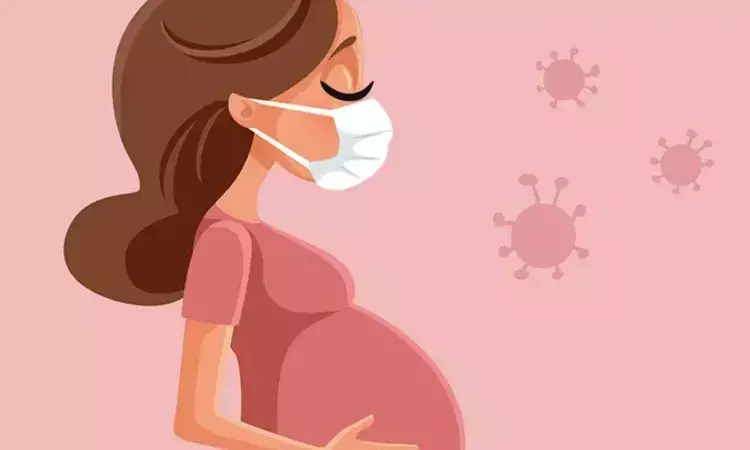- Home
- Medical news & Guidelines
- Anesthesiology
- Cardiology and CTVS
- Critical Care
- Dentistry
- Dermatology
- Diabetes and Endocrinology
- ENT
- Gastroenterology
- Medicine
- Nephrology
- Neurology
- Obstretics-Gynaecology
- Oncology
- Ophthalmology
- Orthopaedics
- Pediatrics-Neonatology
- Psychiatry
- Pulmonology
- Radiology
- Surgery
- Urology
- Laboratory Medicine
- Diet
- Nursing
- Paramedical
- Physiotherapy
- Health news
- Fact Check
- Bone Health Fact Check
- Brain Health Fact Check
- Cancer Related Fact Check
- Child Care Fact Check
- Dental and oral health fact check
- Diabetes and metabolic health fact check
- Diet and Nutrition Fact Check
- Eye and ENT Care Fact Check
- Fitness fact check
- Gut health fact check
- Heart health fact check
- Kidney health fact check
- Medical education fact check
- Men's health fact check
- Respiratory fact check
- Skin and hair care fact check
- Vaccine and Immunization fact check
- Women's health fact check
- AYUSH
- State News
- Andaman and Nicobar Islands
- Andhra Pradesh
- Arunachal Pradesh
- Assam
- Bihar
- Chandigarh
- Chattisgarh
- Dadra and Nagar Haveli
- Daman and Diu
- Delhi
- Goa
- Gujarat
- Haryana
- Himachal Pradesh
- Jammu & Kashmir
- Jharkhand
- Karnataka
- Kerala
- Ladakh
- Lakshadweep
- Madhya Pradesh
- Maharashtra
- Manipur
- Meghalaya
- Mizoram
- Nagaland
- Odisha
- Puducherry
- Punjab
- Rajasthan
- Sikkim
- Tamil Nadu
- Telangana
- Tripura
- Uttar Pradesh
- Uttrakhand
- West Bengal
- Medical Education
- Industry
Disinfectant use during pregnancy increases cases of childhood asthma and eczema

Use of disinfectants by pregnant women may be a risk factor for asthma and eczema in their children, finds a population study, published online in Occupational & Environmental Medicine.
Disinfectants are used frequently in hospitals and other medical facilities, and the covid-19 pandemic has led to an increase in their use in medical settings and also more widely, including by the general population.
Exposure to disinfectants in the workplace has been linked to asthma and dermatitis previously in the workers exposed, but few studies have looked at the impact of disinfectant use during pregnancy and the subsequent development of allergic disease in children.
The authors used data on 78 915 mother-child pairs who participated in the Japan Environment and Children's Study to examine whether mothers' exposure to disinfectants in the workplace was associated with increased risk of diagnosis of allergic diseases in their children when aged 3 years.
The odds of children having asthma or eczema were significantly higher if their mothers used disinfectant one to six times a week compared with the odds in children of mothers who never used disinfectants.
There was an exposure-dependent relationship between prenatal exposure to disinfectants and the odds of children experiencing these allergic conditions, with the children of mothers exposed to disinfectants every day having the highest odds of a diagnosis – 26% greater for asthma and 29% greater for eczema than children of mothers who were never exposed to disinfectants.
There were no significant associations between disinfectant use and food allergies.
This is an observational study, and as such, can't establish cause. The authors also noted some limitations, including that the information on disinfectant use by mothers was self-reported with specific disinfectants not identified. Diagnoses of allergic diseases in children were also reported by mothers.
Nevertheless, the authors conclude, "Our findings indicate that exposure [to disinfectants] during pregnancy exerts an effect on allergies in offspring regardless of whether the mother returns to work when the child is 1 year old, and suggest an effect by exposure during pregnancy alone."
They add, "Given the current increased use of disinfectants to prevent new coronavirus infections, it is of great public health importance to consider whether prenatal disinfectant exposure is a risk for the development of allergic diseases."
Several mechanisms that could explain the increased risk of allergic disease in children following their mothers' exposure to disinfectants during pregnancy were suggested by the authors.
They included microbiome-mediated (disinfectants impact the gut and skin microflora of the mother and subsequently the child), immune-mediated (exposure to some chemical compounds during pregnancy impacts the immune response in the fetus), postnatal exposure (children inhaled or touched molecules of disinfectant on the skin of their mothers), or bias (mothers who use medical disinfectants frequently are likely to be more medically knowledgeable and have better access to healthcare).
To read the full story, click on the following link:
Dr Kamal Kant Kohli-MBBS, DTCD- a chest specialist with more than 30 years of practice and a flair for writing clinical articles, Dr Kamal Kant Kohli joined Medical Dialogues as a Chief Editor of Medical News. Besides writing articles, as an editor, he proofreads and verifies all the medical content published on Medical Dialogues including those coming from journals, studies,medical conferences,guidelines etc. Email: drkohli@medicaldialogues.in. Contact no. 011-43720751


